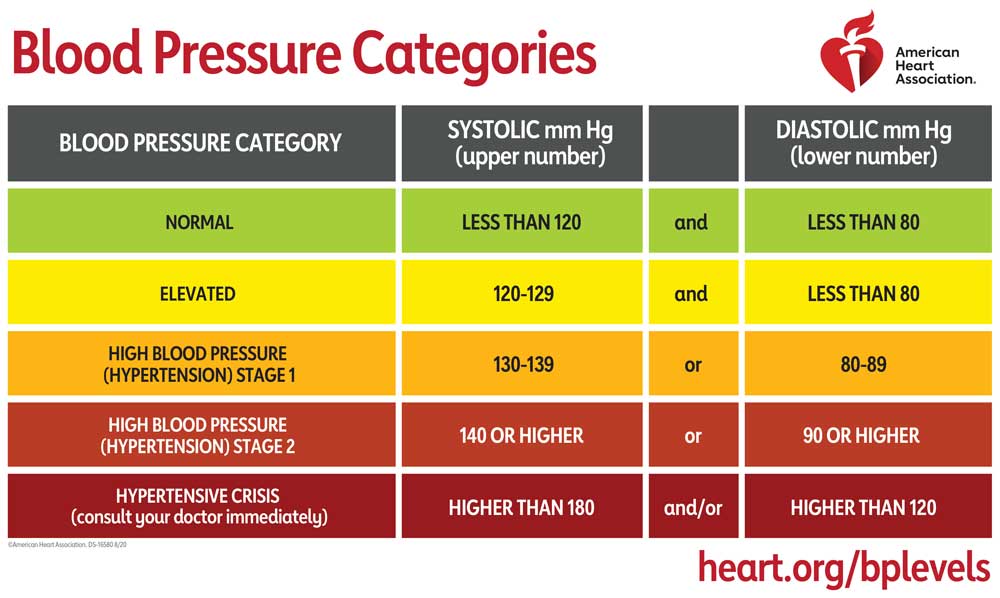Quick Stats:
- 45% of American adults (108 million) have hypertension
- Only 1 in 4 with hypertension have it under control
- Nearly half (45%) of those with uncontrolled hypertension
have a blood pressure of 140/90 mm Hg or higher
What is High Blood Pressure?
Blood pressure is the force of blood as it flows through the arteries as the heart pumps blood through the body. Blood pressure levels fluctuate throughout the day and can be affected by a variety of different factors, such as temperature, stress levels, exercise, diet, medication, and even the time of day. However, if your blood pressure is consistently above the normal or safe levels for your body, this is diagnosed as high blood pressure, also referred to as HBP or hypertension.
HBP is a very common condition in the United States, affecting around half of all American adults, yet it often remains undiagnosed as there are usually no obvious symptoms. Despite this, there are significant dangers to having HBP, and it can lead to other serious health problems, including heart attacks, heart failure, strokes and kidney disease. HBP is often referred to as the “silent killer” due to the lack of symptoms and the serious risks associated with it when left undiagnosed and untreated.
Risk Factors
What causes high blood pressure?
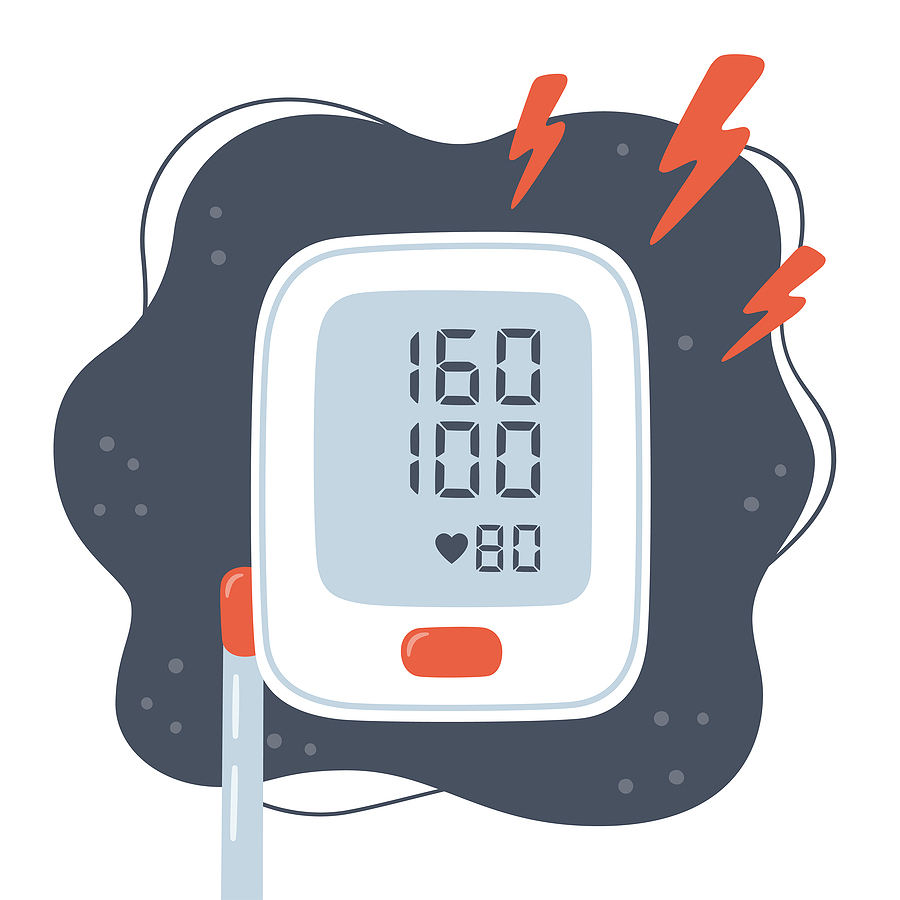
Hypertension tends to develop slowly over time and there is no single cause of high blood pressure in adults. Many factors can contribute to HBP, including genetics, lifestyle, medications and pre-existing medications.
Genetic risk factors:
- Age - the risk of HBP increases as you age.
- Race - HBP can affect anyone, but it is particularly common in people of African heritage
- Family history - if HBP is common in your family, you may be at a higher risk from this condition
Lifestyle risk factors
- Weight - being overweight or obese increases your risk of having HBP
- Lack of physical activity - this can lead to a higher heart rate, putting more strain on the heart and more force on the arteries.
- Tobacco use - this can damage the artery walls and increase your risk of heart disease
- Drinking to much alcohol - heavy drinking can damage the heart and this may affect your blood pressure
- Excessive salt (sodium) in your diet - salt causes the body to retain fluid, which increases blood pressure
- Too little potassium - potassium helps balance sodium in the body, so eating too little potassium can result in higher sodium levels
- Stress - stress can temporarily increase blood pressure and may lead to other behaviors that may increase blood pressure, such as drinking, smoking and over-eating.
Other factors:
- Certain medical conditions can lead to HBP, such as chronic kidney issues or hormone-related conditions.
- Some medications and supplements.
Other Causes
Which medical conditions can cause high blood pressure?
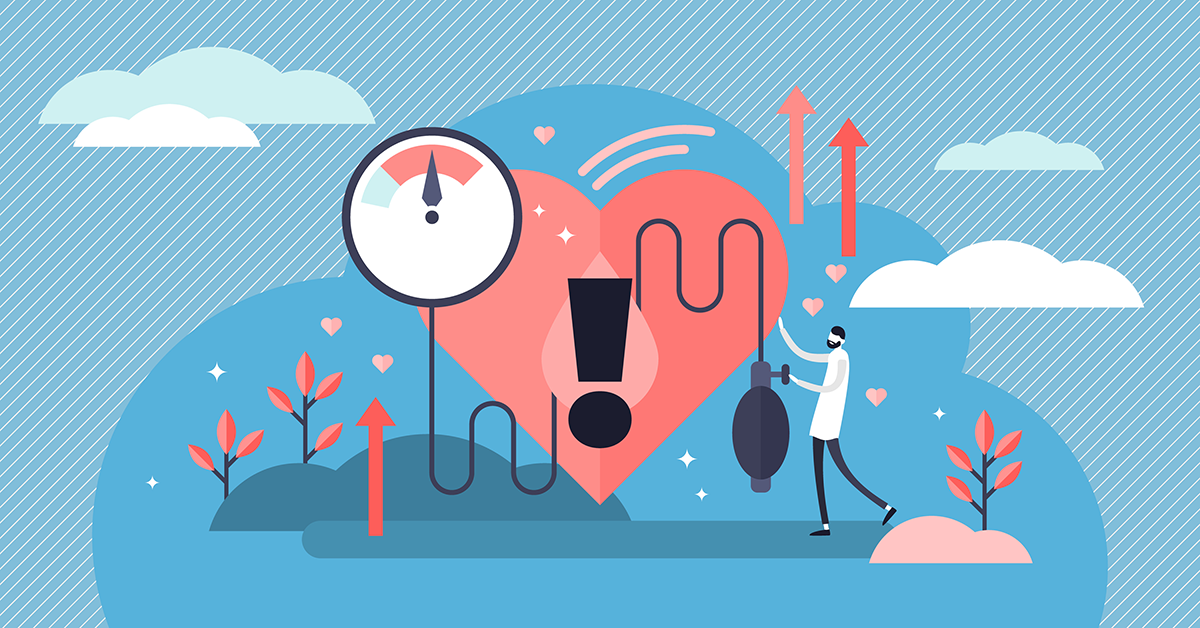
In some cases, HBP can be caused by other medical conditions - this is known as secondary hypertension. A number of kidney diseases can cause secondary hypertension, including complications as a result of diabetes (diabetic nephropathy), which is when diabetes damages the kidney’s filtering system; polycystic kidney disease; and renovascular hypertension, which is caused by a narrowing of the arteries leading to the kidneys.
Other conditions that may lead to high blood pressure include certain heart-related conditions, pregnancy-induced hypertension, and sleep apnea. Conditions that affect hormone levels may lead to increased blood pressure, for example aldosteronism, thyroid problems and Cushing syndrome.
Which medications can cause high blood pressure?
Some prescription medication, over-the-counter drugs and supplements can increase your blood pressure. Prescription drugs that may include HBP as a side effect include some pain relieving medications, antidepressants, birth control pills and some of the medications used after organ transplants.
Certain over-the-counter meds may also increase your blood pressure, for example some cold medicines and decongestants. These work by narrowing your blood vessels, making it harder for blood to flow and therefore increasing blood pressure. Some pain relieving medications, such as ibuprofen and aspirin, may also increase blood pressure, as they cause you to retain water and potentially lead to kidney problems.
Some illegal drugs can also cause increased blood pressure, notably cocaine, amphetamines, methamphetamine, and anabolic steroids.
Herbal supplements and high blood pressure
If you have high blood pressure, you should also be careful about which herbal supplements you take as some of these can affect your blood pressure. Examples of supplements that can affect blood pressure or blood pressure medications include:

- Arnica
- Ginseng
- Ephedra
- Guarana
- St John’s Wort
- Licorice
Other substances that can raise blood pressure include caffeine, alcohol and nicotine. If you notice your blood pressure is increasing or is suddenly higher than normal, speak to your physician let them know exactly what medication and supplements you are taking as well as any other substances that may increase your blood pressure. There may be an easy adjustment to your medication regimen or some simple lifestyle changes you can make to keep your blood pressure in the healthy range.
Blood Pressure Ranges
How is blood pressure measured?
Blood pressure measurements contain two figures, measured with the units mm Hg. The first number indicates the systolic blood pressure and the second number the diastolic blood pressure, for example 120/80 mm Hg. But what does this mean?
- Systolic blood pressure - pressure exerted on the walls of the artery while the heart beats
- Diastolic blood pressure - pressure exerted on the walls of the artery as the heart rests between beats
If either measurement is above the normal range, this may lead to a diagnosis of high blood pressure, although more focus is usually placed on the systolic blood pressure when assessing blood pressure as a risk factor for cardiovascular disease.
What is a healthy blood pressure range?
A normal, healthy range of blood pressure is considered to be below 120/80 mm Hg. Significantly low blood pressure may result in symptoms such as nausea or dizziness, but as a general rule (and when there are no symptoms), the lower your blood pressure the better. The American Heart Association (AHA) identifies five blood pressure categories.
Normal:
Under 120/80 mm Hg - This is the normal, healthy blood pressure range.
Elevated:
120-129/80 mm Hg - When systolic blood pressure is between 120 and 129, but diastolic blood pressure is under 80, this is considered elevated. In this case, steps should be taken to control the condition as there is a risk that high blood pressure will develop over time. These may include lifestyle changes such as getting more exercise and adjusting diet.
Hypertension Stage 1
130-139/80-89 mm Hg - - If a physician diagnoses hypertension stage 1, they are likely to suggest lifestyle changes and may consider prescribing medication to reduce the risk of certain complications associated with HBP.
Hypertension Stage 2
140/90 mm Hg and above - When blood pressure reaches this range, doctors are likely to prescribe blood pressure medication and strongly recommend lifestyle changes.
Hypertensive crisis
Above 180/120 mm Hg - Blood pressure in this range requires immediate medical attention as you may be in hypertensive crisis. This stage may also be accompanied by symptoms such as severe headaches, shortness of breath, nosebleeds and anxiety. If your blood pressure reading is in this range, the AHA recommences waiting five minutes and retesting. If the reading is high, but there are no accompanying symptoms, this is considered a hypertensive urgency that requires attention from your healthcare provider. If there are any other symptoms, it is considered a hypertensive emergency and you should call 911.
Treatment & Management
How can I prevent or manage high blood pressure?
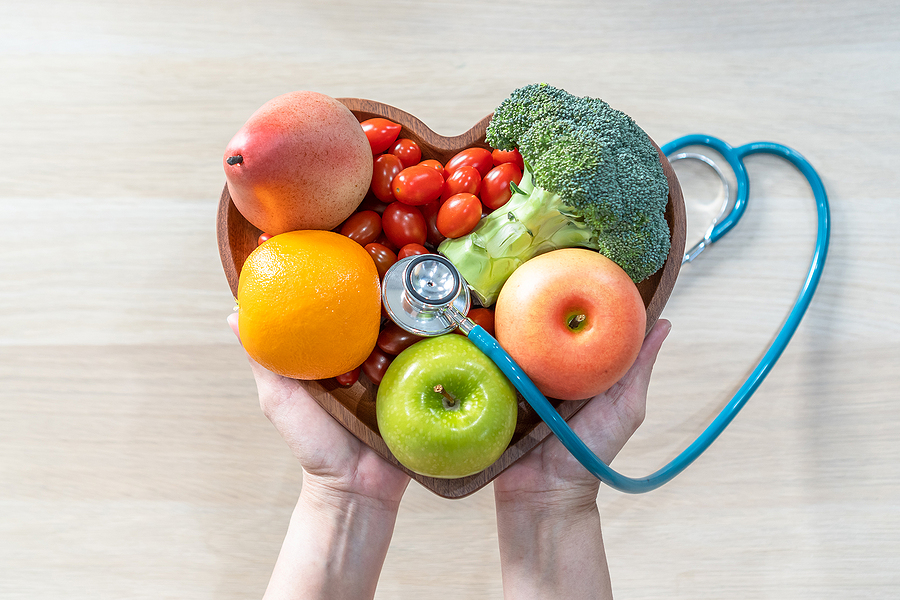
There are many factors that can increase the risk of high blood pressure. Some are hereditary or physical and cannot be controlled, for example, your family history, age, gender, race or pre-existing medical conditions, such as chronic kidney disease. However, some risk factors can be controlled to help prevent or manage HBP…
- Increase activity levels - physical activity is great for heart health and the circulatory system. Consequently, getting fitter and doing more exercise can lower your risk of HBP.
- Improve diet - a healthy diet rich in fruits, vegetables, whole grains, low-fat dairy, nuts, legumes and lean meats can help you manage your blood pressure and improve your general health. Foods to limit include saturated and trans fats, foods high in sodium, red meat and sugary drinks.
- Lose weight - being overweight or obese can increase strain on the heart and put you at a higher risk of high blood pressure.
- Drink less alcohol - regular alcohol consumption can lead to HBP and heavy drinking is associated with a number of other heart problems.
- Quit smoking - smoking can temporarily increase blood pressure and can also damage the arteries, increasing the risk of heart-related health problems.
- Reduce stress levels - stress can increase your blood pressure, and being constantly or regularly stressed may also increase the chance that you will engage in other behaviors that lead to HBP, such as eating a poor diet, drinking, smoking and not getting enough exercise.
Can I test my blood pressure at home?

Yes, you can get home blood pressure testing kits to help you monitor your blood pressure levels without a trip to the doctor. If you decide to start monitoring your blood pressure at home, here are some simple guidelines for getting the most accurate readings:
- Avoid things that may affect your blood pressure beforehand - do not smoke, drink alcohol or caffeine, or exercise for 30 minutes before you take a measurement.
- Take two readings - each time you take a blood pressure reading, do two measurements, at least one minute apart.
- Do it at the same time each day - ideally you should take measurements every day. Try to ensure you take the measurements at the same time, usually in the morning or the evening.
- Record all results - keep a record of your results, even if one seems particularly high or low.
- Get settled in - sit in a chair that supports your back and sit up straight. Keep your feet flat on the floor and keep your arms supported on a flat surface, such as a table or the arm fo the chair. Your upper arm should be at the same level as your heart.
- Apply the cuff correctly - the cuff should be placed above the bend in the elbow. Ensure you read the instructions on your blood pressure monitor or ask your healthcare provider to show you how to take readings correctly.
- Don’t test over clothes - wear a t-shirt or loose fitting sleeves that you can easily roll up. Don’t apply the cuff over clothing.
What medications are used to treat high blood pressure?
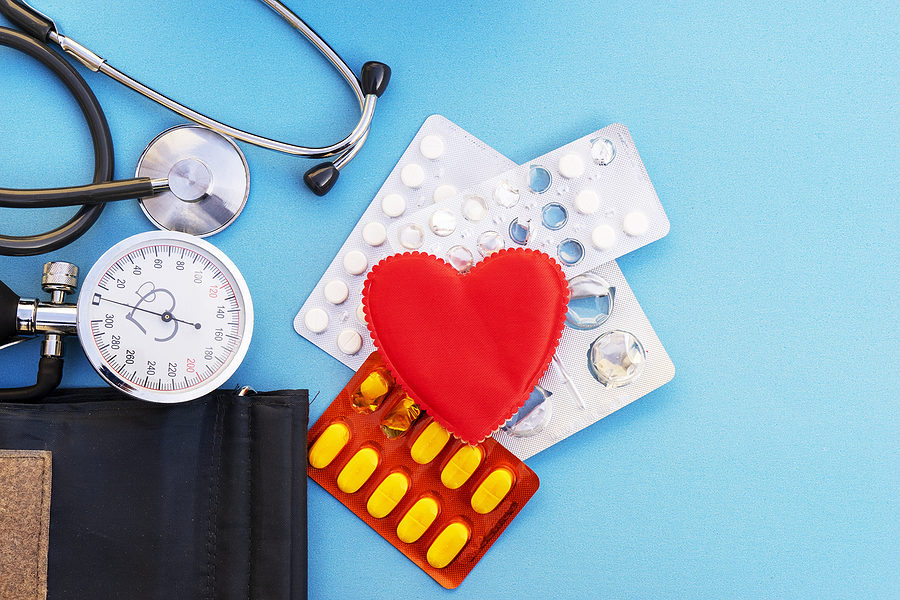
If you are diagnosed with high blood pressure, your physician may decide to prescribe antihypertensive medication. These are some of the most common drug classes prescribed as antihypertensives…
- Diuretics are some of the most commonly used medications for treat HBP. These help rid the kidneys of excess water and sodium, and so reduce the volume of blood that needs to pass through the blood vessels. Examples include chlorthalidone and chlorothiazide.
- Beta-blockers, for example atenolol or metoprolol tartrate reduce the speed and force that the heart blood through the blood vessels.
- Angiotensin converting enzyme (ACE) inhibitors, such as lisinopril, suppress the body’s production of a hormone called angiotensin II, which causes a narrowing of the blood vessels. This enables the blood vessels to expand and allow more blood to flow through.
- Angiotensin II receptor (ARB) blockers are similar to ACE inhibitors, except they work by preventing the ARBs from binding to a receptor site, which prevents them from working to narrow the body’s blood vessels. Examples of ARB blockers include losartan and telmisartan.
- Calcium channel blockers block calcium from entering the muscle cells in the heart and blood vessels. This reduces the force by which the heart beats and relaxes the blood vessels. Examples include amlodipine and diltiazem.
- Alpha blockers such as doxazosin block the action of catecholamine hormones, which can cause the blood vessels to narrow.
- Central agonists prevent the release of catecholamine hormones. Examples include clonidine and methyldopa.
- Vasodilators relax the muscles in the walls of the blood vessels, enabling easier blood flow. Examples include hydralazine and minoxidil.
Other classes of antihypertensives include:
- Peripheral adrenergic inhibitors
- Direct renin inhibitors (DRIs)
- Various combination medications, for example combined alpha and beta-blockers or combined diuretics and ARB blockers, such as Diovan HCT, which contains valsartan and hydrochlorothiazide.
